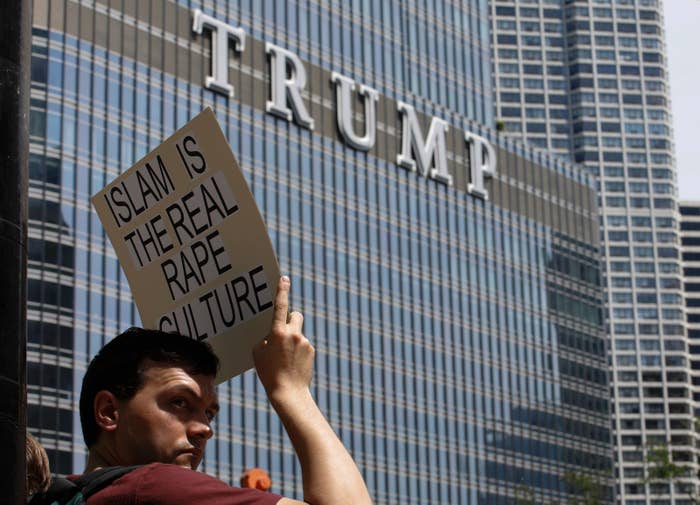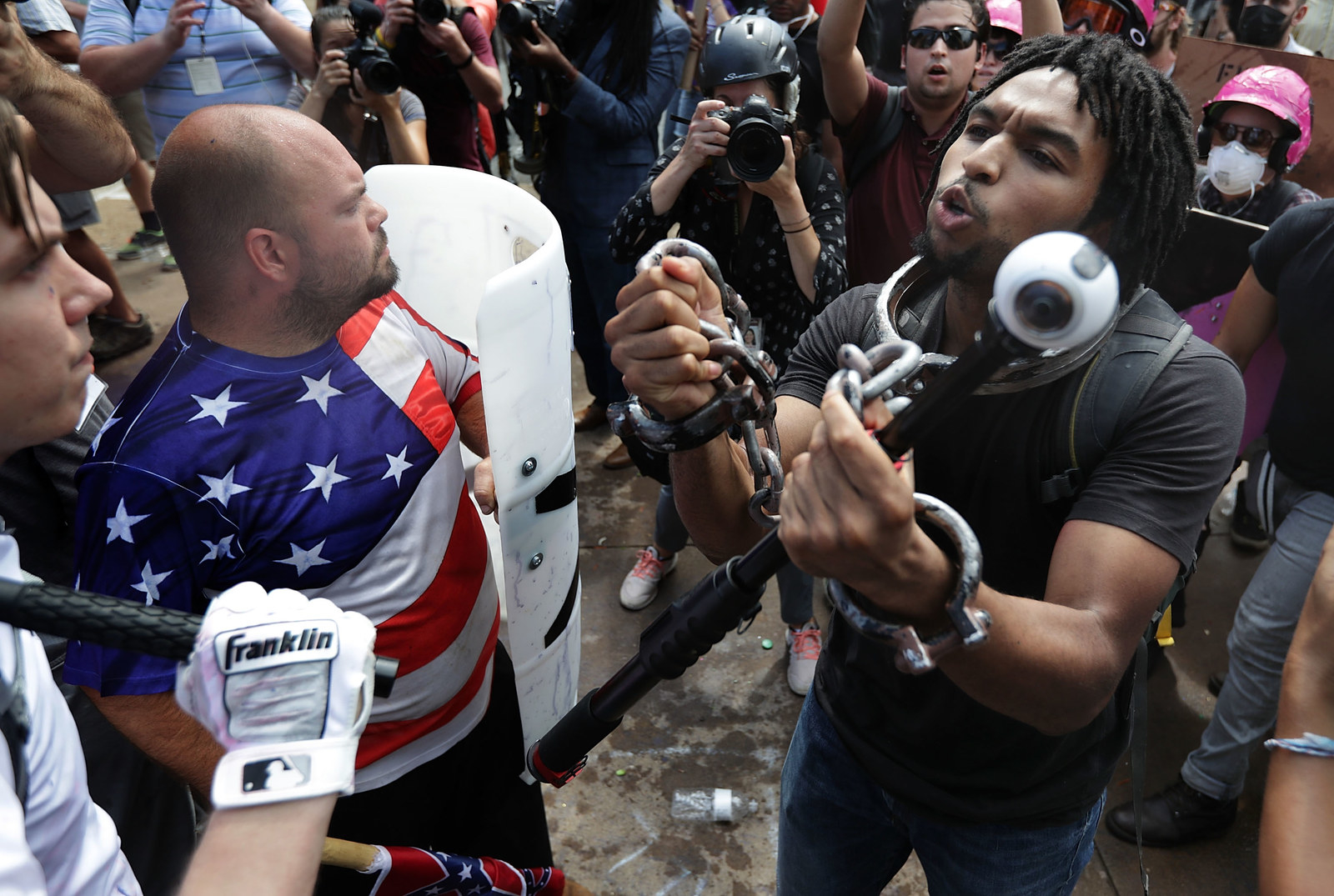
As the 2016 campaign season kicked off, I quickly began seeing signs that America was moving toward a cycle of violence. I didn’t just know this because I’m an immigrant, an Arab, a Muslim, and a woman. I knew it because in my day job, I specialize in detecting the early warning signs of authoritarianism and civil war.
According to those early signs, America looked like it was heading somewhere dark and dangerous. When I began seeing them, I hoped I’d be proved wrong — I’ve never wanted to be wrong about something so much in my life. But what I didn’t foresee was that I would get caught up personally in this harsh, intolerant new political environment.
Throughout the election season I was an official at the US Institute of Peace, a federal institution that works to end conflicts around the world. In my two decades there I worked across the Middle East and North Africa, where I saw firsthand how bigoted words could incite violence. In an interview when the Republican primary campaign was still underway, and Donald Trump’s rhetoric was hitting new lows, I warned that his hateful words similarly put lives in danger.
More than 18 months later those comments were cited in a congressional hearing by Rep. Scott Perry, a Republican from Pennsylvania, as he called for me to be fired. He said my words interfered in partisan politics — a red line for any public servant.

Those who know my work know I always encourage people to participate in government — even when you passionately disagree with its actions. This can be a particularly tough challenge for people from minority communities who feel harmed by state policy: We face a two-front battle, confronting both the policies that harm us and those in our own community who criticize us for aligning with the government.
I often struggled with this during my time at the institute, and there were moments during the Obama administration when I felt morally compromised. But I stuck around, because my voice was never silenced. In fact, I confronted President Barack Obama face to face over Middle East policy at the White House in 2014. He was willing to talk about our differences.
All that changed this year.
Whereas an actual argument with the president never put my job in question in 2014, in 2017 the act of identifying hate speech for what it was, spoken by a man who at the time was one of many vying for the Republican nomination, is now seen by some as unacceptably political. The change speaks volumes about the state of our nation.
The change also taught me that my long-held beliefs about public service needed a rethink. The idea of engagement requires a counterparty to engage with, and in our strange new political moment, those who speak honestly about dangerous, bigoted rhetoric — those wanting to bring peace to the world — have few allies in the White House.
What Rep. Perry didn’t know when he called for my firing earlier this month is that I had already submitted my resignation. The actions of the Trump administration made me realize that being "nonpartisan" — at least in the way that many in Congress now define it — is morally irresponsible at a time of hate speech and violent incitement.
Experts need to speak up, because experience has shown that the warning signs are always there: the militarization of the police, attacks on the media, and the rise of sexism. But human nature does not necessarily want to see them — it wants to believe never again or not here, not in America. But we must learn from populations around the world who have gone into denial over and over again, only to wake up when it is too late.

Our government needs people who can speak openly about this. But engagement cannot take place when self-censorship is a prerequisite. Partnerships cannot be developed when individuals feel vulnerable. As government institutions continue to build out their diverse workforces, protection for the staff who are the most vulnerable must be a crucial component.
My work has taught me that events like Charlottesville aren’t just predictable, they’re also preventable, as long as the warning signs are seen for what they are. The stakes are too high for silence, and those like Congressman Perry, who see the mere identification of hate speech as an unacceptably partisan act, should think again about the message they are really sending.
Manal Omar is the CEO & Founder of AcrossRedLines and a Truman National Security Fellow.
